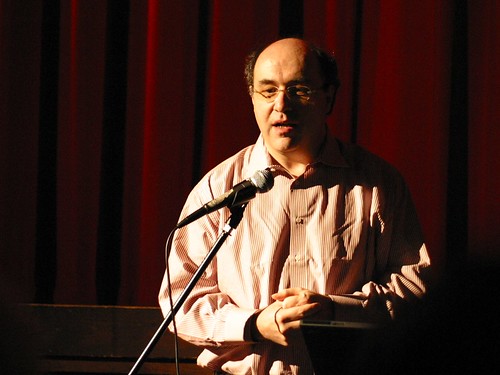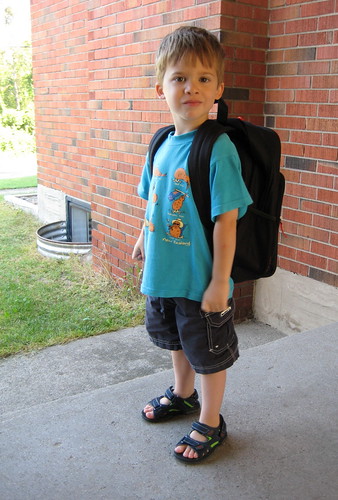OK, that’s pretty big — and it is certainly an exaggeration (?). But a quick Google blog search reported 73,621 hits, with 1,409 blog posts mentioning Wolfram Alpha in the past 12 hours.
 |
|
|
Created by Stephen Wolfram, who brought us Mathematica and wrote A New Kind of Science, WolframAlpha reportedly reaches the holy grail of a (natural) question-asking World Wide Web. Described as a computational knowledge engine (( Wolfram, Stephen. “Wolfram|Alpha is Coming!.” [Weblog Wolfram Blog] 5 Mar 2009. Web.4 May 2009. <http://blog.wolfram.com/2009/03/05/wolframalpha-is-coming/>. )), Wolfram reportedly has figured out a way, using the tools of Mathematica and the concepts from A New Kind of Science to curate (his term) much of the content available through the web. I understand little of the explanations I’ve read about the book, but it seems to say (and this is a gross simplification) that everything can be factored down to a set of interconnected simple abstract rules that can be expressed algorithmically. It appears that he’s figured out how to make the content of the Web computational, and can make a natural question computational, resulting in, well, a computational search engine. Kick me if I got this completely wrong.
On March 5, Wolfram wrote in his blog:
A lot of it (actual knowledge that we as humans have accumulated) is now on the web—in billions of pages of text. And with search engines, we can very efficiently search for specific terms and phrases in that text.
But we can’t compute from that. And in effect, we can only answer questions that have been literally asked before. We can look things up, but we can’t figure anything new out.
So how can we deal with that? Well, some people have thought the way forward must be to somehow automatically understand the natural language that exists on the web. Perhaps getting the web semantically tagged to make that easier.
But armed with Mathematica and NKS I realized there’s another way: explicitly implement methods and models, as algorithms, and explicitly curate all data so that it is immediately computable.
I’m a bit skeptical and people who have seen it already give it less than an A+. And I’m not sure I am ready to relinquish the questions I pose to the web (i.e., “wolfram alpha” +reviews -site:wikipedia.org) to an algorithm. But still, this is intriguing. According to Wolfram, as reported in a recent Independent article:
If you ask it to compare the height of Mount Everest to the length of the Golden Gate Bridge, it will tell you. Or ask what the weather was like in London on the day John F Kennedy was assassinated, it will cross-check and provide the answer. Ask it about D sharp major, it will play the scale. Type in “10 flips for four heads” and it will guess that you need to know the probability of coin-tossing. If you want to know when the next solar eclipse over Chicago is, or the exact current location of the International Space Station, it can work it out. (( “An Invention that could Change the Internet for Ever,” The Independent 3 May 2009. INM. Web.4 May 2009. <http://www.independent.co.uk/life-style/gadgets-and-tech/news/an-invention-that-could-change-the-internet-for-ever-1678109.html>. ))
What I find so interesting about this is the sense of a conversational body of knowledge. The ability to have a conversation with a global digital library. The implications of that are astounding to me.

Powered by ScribeFire.




